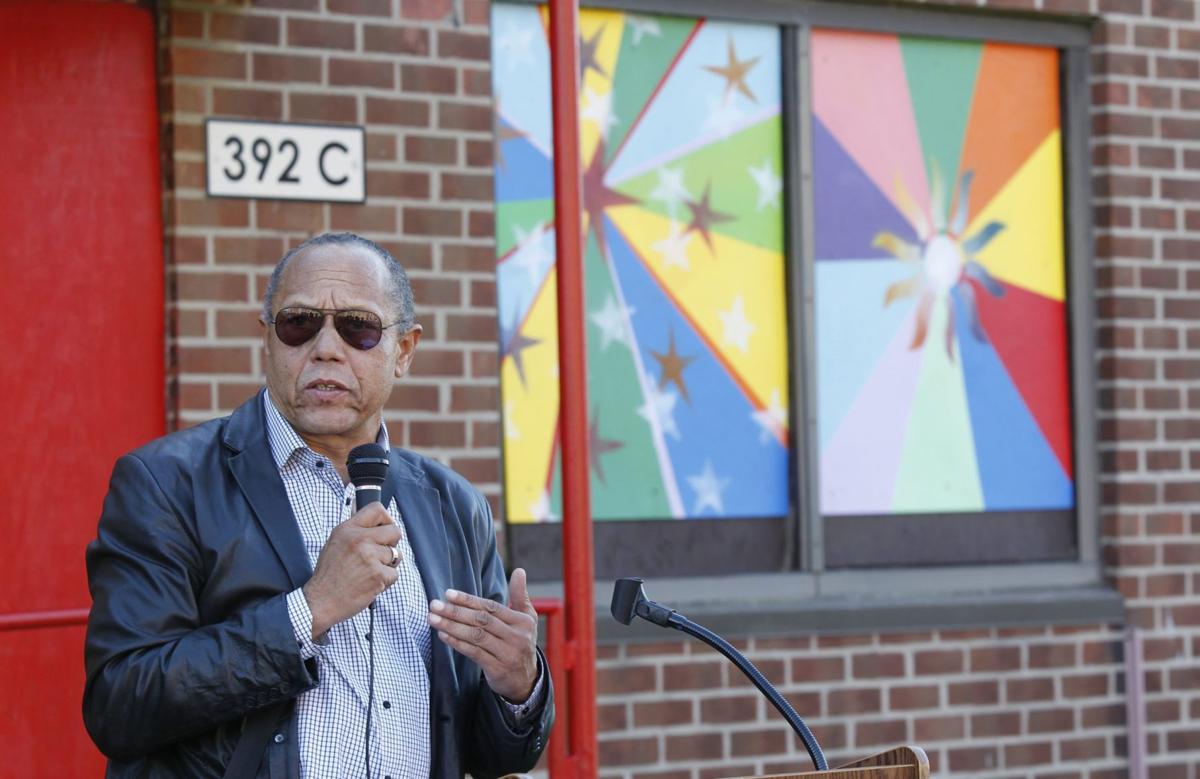By Rod Watson
Reposted from Buffalo News
July 8, 2020

A few years ago, University at Buffalo President Satish Tripathi used his annual address to trumpet the UB 2020 strategic plan as laying the groundwork for propelling Buffalo Niagara in everything from health care and the arts to business and industry.
But with that target year now here and bringing a whole new set of issues – or, rather, an acknowledgement of issues that Blacks have long tried to raise – UB’s faculty is pushing one of the region’s major institutions to take on something else: systemic racism.
In an overwhelming vote a couple of weeks ago, United University Professions – which represents most faculty – passed a resolution condemning “police violence against African American, Indigenous and Latino/Latina residents,” opposing “the militarization of police and its impact on communities of color and on peaceful protests,” and supporting “reallocation of Buffalo resources from policing toward investment in Buffalo’s low-income communities of color.”
The union also backed the restoration of former police Officer Cariol Horne’s full pension and the passage of Cariol’s Law to protect officers – like her – from retaliation when they intervene to stop abusive colleagues.
And significantly, the resolution calls out a fellow union – without actually naming Buffalo’s powerful Police Benevolent Association – by citing the number of local cases of police brutality and opposing “manipulation of the labor movement and workers’ rights for any continuation of violence and lack of accountability of police officers toward African Americans and any others.”
“For the very first time, we have a significant segment of the UB union faculty that is supportive of an anti-racist activity in the City of Buffalo,” said Henry L. Taylor Jr., professor of urban and regional planning and one of the seven who drafted the resolution.
But beyond merely adding the faculty’s voice to a growing movement, backers hope the UUP stance will be a “building block” that also prompts the university to look in the mirror and lead by example.
For instance, economics professor Paul Zarembka, who helped conceive the resolution, pointed to a 40% drop in African American tenure-track faculty at UB over the past decade.
That kind of reduction means any discussion of systemic racism must start on the campus itself if UB is to lead that conversation with any credibility.
Taylor – director of UB’s Center for Urban Studies – also points to a “gradual dismantling” of infrastructure linking UB to the Black community, such as the elimination of a vice presidency focused in part on urban affairs, and the absorption of the Department of Black Studies into another unit.
Yet both men also cite hopeful developments, like the university’s new Community Health Equity Research Institute that builds on the work of the African American Healthy Equity Task Force. And Taylor credits recent forums like one sponsored a few weeks ago by the Law School to raise consciousness, and another online forum planned for July 14 on racial equity.
In addition to those steps, UB officials point to Tripathi’s Advisory Council on Race, announced in June to “battle racism and dismantle structural barriers to equality.” The university also committed $1 million annually to a new Distinguished Visiting Scholars program led by the Center for Diversity Innovation to bring in experts who can help UB advance inclusion, and it has named diversity officers at all its schools.
Provost Scott Weber is aware of the decline in African American faculty, from 5% of the total in 2009 to just 3% in 2019. Weber made a commitment to double the number in five years when he took the job about six months ago. Granted, that was before Covid-19 struck, but he remains committed to the goal.
But Weber – who says UB “out-recruited” the available talent pool – said the real question is why people leave. Is it financial? Is it because of the departmental, university or community culture? He wants to interview former and current faculty to find out so that UB doesn’t just hire, but also retains, a diverse faculty.
He said discussions also are underway about reinstituting the Department of Black Studies, by that name or some other, noting a strong interest on the part of students impacted by such classes.
Such moves align the university with the social justice movement, provided there is follow-through. And with the faculty resolution passing by an overwhelming 74-9 margin, with nine abstentions, Zarembka pointed to what has the potential to be a watershed moment – if the momentum lasts.
That momentum results from video of a white Minneapolis police officer kneeling on George Floyd’s neck for 8 minutes and 46 seconds, literally squeezing the life out of him, plus video of an elderly white man being shoved the ground by Buffalo police during a peaceful protest.
“People are accepting a reality that they really didn’t want to talk about before,” Zarembka said.
Taylor calls it a “Rip Van Winkle moment” in which other Americans wake up to what some have lived all along.
Now he hopes the vote by a faculty that is 77% white becomes “leverage” that pushes the university to take additional steps like empowering the Office of Diversity and investing more in institutions that focus on the African American community. He also hopes the vote will embolden Tripathi’s new race council.
And as budget cuts loom in response to the Covid-19 pandemic, Taylor thinks the faculty vote also can be a “breakwater” that prevents the university’s commitment from waning.
Much of that commitment is reflected in fairly recent initiatives or promises, with results still to be determined. But it’s hard to single out the university for failing to recognize what most of the rest of nation also failed to recognize for so long.
However, if that commitment does now wane – for financial or any other reasons – it will be a statement that will not go unnoticed. After all, budgets reflect what an institution really values.
UB has the resources, expertise and prestige to lead in this effort. And once you’ve been awakened, you can no longer pretend that you don’t see what’s going on around you.
